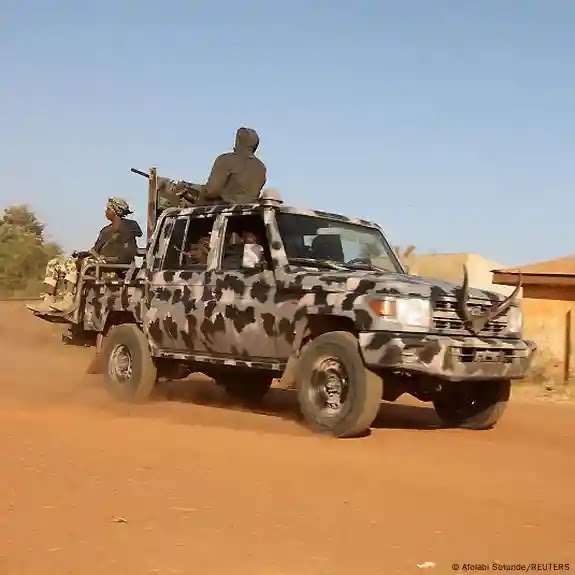News Analysis: By Abdul Lauya
The horror struck before sunrise. Worshippers gathered for dawn prayers at Unguwan Mantau mosque in Malumfashi Local Government Area of Katsina State when armed bandits stormed the building, opening fire and setting off yet another tragedy in Nigeria’s embattled northwest.
Initial reports said 13 people were killed in the mosque, but later accounts painted a grimmer picture: up to 30 worshippers murdered inside, with another 20 villagers burned alive in nearby settlements, raising the death toll to around 50. Dozens more were abducted, including women and children, leaving the community in shock and despair.
The attack, on August 19, 2025, was not random. Officials believe it was retaliation after local vigilantes, part of the state-backed Community Watch Corps, ambushed and killed several bandits days earlier.
In northwest Nigeria, such cycles of reprisal are common. Communities organize self-defense groups because they feel abandoned by the state, but these vigilantes often become fresh targets for revenge.
Katsina, President Muhammadu Buhari’s home state, has become one of the epicenters of the banditry crisis. Decades of farmer-herder conflicts over land, coupled with porous borders and the proliferation of assault rifles, have turned criminal gangs into warlords. They impose “taxes” on farmers, extort traders, and run kidnap-for-ransom rackets. Attacks on mosques, schools, and villages are no longer anomalies, they are part of a bloody routine.
Governments have tried almost everything. The federal authorities launched military operations with names like Hadarin Daji and Sharan Daji, bombing forest hideouts and deploying troops. Katsina’s former governor Aminu Masari attempted peace deals, offering amnesty and incentives, but the bandits regrouped.
Incumbent Governor Dikko Radda, has adopted a harder stance, creating the Community Watch Corps to complement the Army and Police. Yet, since 2023, over 100 of these local guards have been killed.
The persistence of violence speaks to a deeper reality. Banditry has become a business. It thrives on ransom money, rustled cattle, illegal gold mining, and fuel smuggling. Many rural communities reluctantly cooperate with bandits because they provide protection, albeit at a deadly price, while accusing security forces of brutality and neglect. In this shadow economy, guns and blood have become currency.
The human cost is devastating. Farmlands lie abandoned, worsening food shortages. Thousands have fled their villages, swelling camps in Katsina and across the border in Niger Republic. School closures after mass kidnappings have left children in limbo, fueling the region’s crisis of out-of-school youth. Each new massacre deepens fear, poverty, and displacement.
The mosque killings reveal a stark truth: Nigeria cannot bomb or negotiate its way out of this crisis alone. Military offensives scatter gangs, but they return. Amnesty deals collapse when payments dry up.
Community vigilantes bring short-term defense but provoke deadlier reprisals. Unless rural development, border security, and justice reform catch up with firepower, tragedies like Unguwan Mantau will keep repeating.
For now, the people of Katsina bury their dead, haunted by a question that has no easy answer: if even a house of prayer is no sanctuary, where in the northwest is safe?
For advert placement and inquiries, publication of press releases, and news coverages, please call: Phone: 08052898434 Email: editor@eyereporters.com, click here to view the advert rates.



